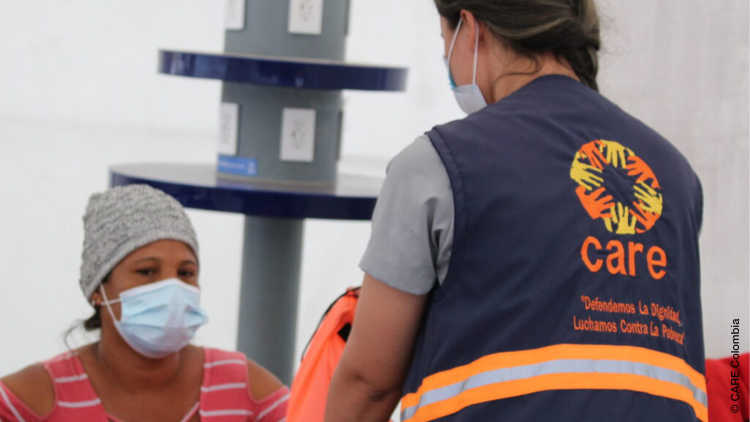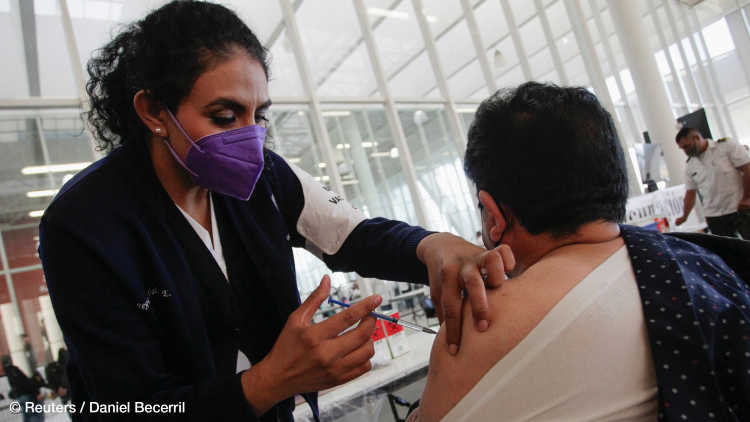- Startseite
- Veranstaltungen
- Konferenzen und Workshops
- Designing Effective Policy Interventions on Treatable Infectious Diseases
Gesprächsrunde mit der Universität Hamburg
Designing Effective Policy Interventions on Treatable Infectious Diseases
Social Vulnerability and Syphilis at the Colombia-Venezuela Border
Datum
20.11.2023
Beginn
14:00 Uhr (UTC)
Ende
15:30 Uhr (UTC)
The spread of infectious diseases remains a global threat. When widely available treatments exist, the challenge becomes one of rapid policy intervention to treat and prevent further spread. Our study addresses a highly treatable, sexually transmitted disease -syphilis- amid population displacements in the Venezuela-Colombia border region, most dramatically manifested in the rise of congenital syphilis among newborns. Previous studies have indicated treatment rates among adults of less than five percent, fueling the health crisis.
Our study embedded a quasi-experiment within a health services pilot project on the prevention, diagnosis and treatment of syphilis, conducted by CARE Colombia in Cúcuta, reaching 1,800 people in zones of high vulnerability between March and July 2023. Those who tested positive for syphilis (6%) had all undergone a short educational workshop and received free follow-up treatment. Approximately half also received cash transfers conditional upon completion of treatment. Among this group, adherence to treatment reached 80%, while for the group without the monetary transfers, adherence reached 45%. The experiment was complemented by qualitative interviews with at-risk youth (11 males and 19 females), and twenty mothers with newborns with congenital syphilis. They revealed lack of knowledge about syphilis (97% among young people and 75% among mothers), gender relations where male behavior increases the risk of infection (more sexual partners, greater refusal to use condoms), and lack of access to the public health system (more than 85% had no healthcare affiliation, and among mothers, 85% had not had the prenatal check-ups recommended by the Colombian health system), amid high material deprivation over-all. Our findings show that, in addition to informational prevention campaigns and access to free treatment, small monetary incentives for individuals who struggle to meet basic necessities are an effective and low-cost strategy when compared to the costs of untreated syphilis, including perinatal morbidity and mortality secondary to gestational syphilis.
More broadly, our findings suggest that combining social protection and health measures provide for more effective ways of combatting treatable infectious diseases, particularly in conditions of high socio-economic vulnerability and low state capacity.
The project was funded by the GIZ (Deutsche Gesellschaft für Internationale Zusammenarbeit), and administered by the German Institute for Global and Area Studies (GIGA), with Merike Blofield and Bert Hoffmann, and as a sub-contract from the Charité ColVacSif project, coordinated by Felix Drexler.
Speakers: Prof. Dr. Merike Blofield is Professor of Political Science/Global Health and Social Policy at Universität Hamburg.
Dr. Rafael Olarte is Head of Epidemiology at Hospital Universitario Erasmo Meoz in Cúcuta.
Prof. Dr. Doris Parada is Dean of School of Nursing at Universidad Francisco de Paula Santander in Cúcuta.
Magaly Pedraza is Public Health Consultant in Bogotá.
Moderator: Prof. Dr. Bert Hoffmann is Lead Research Fellow at the GIGA Institute for Latin American Studies.
Organisation
Adresse
GIGA, Neuer Jungfernstieg 21, 20354 Hamburg, Germany
Sprache
Englisch
Registrierung erforderlich





